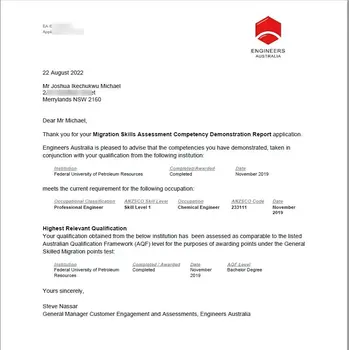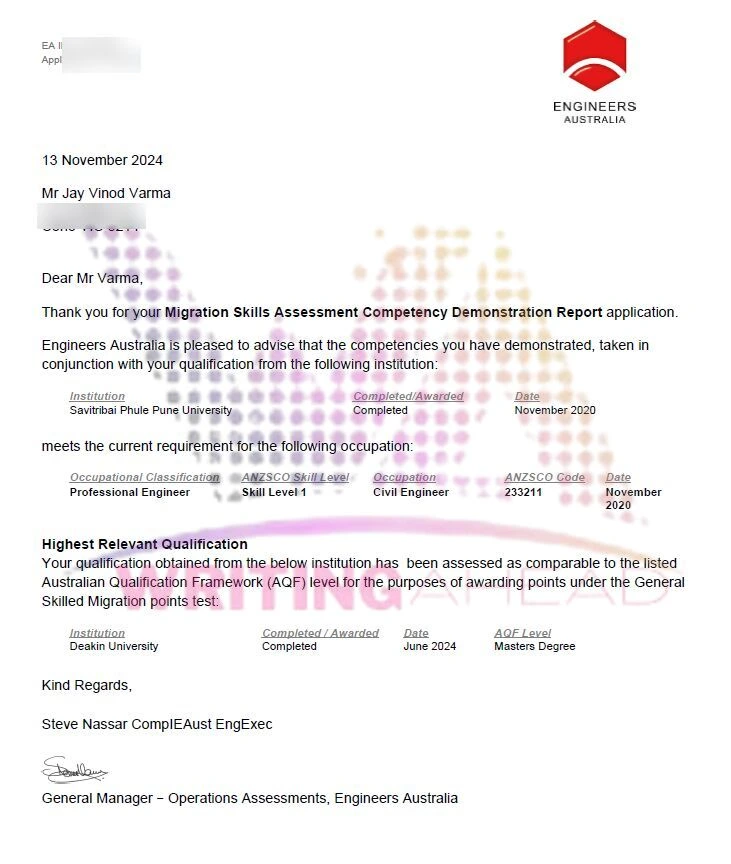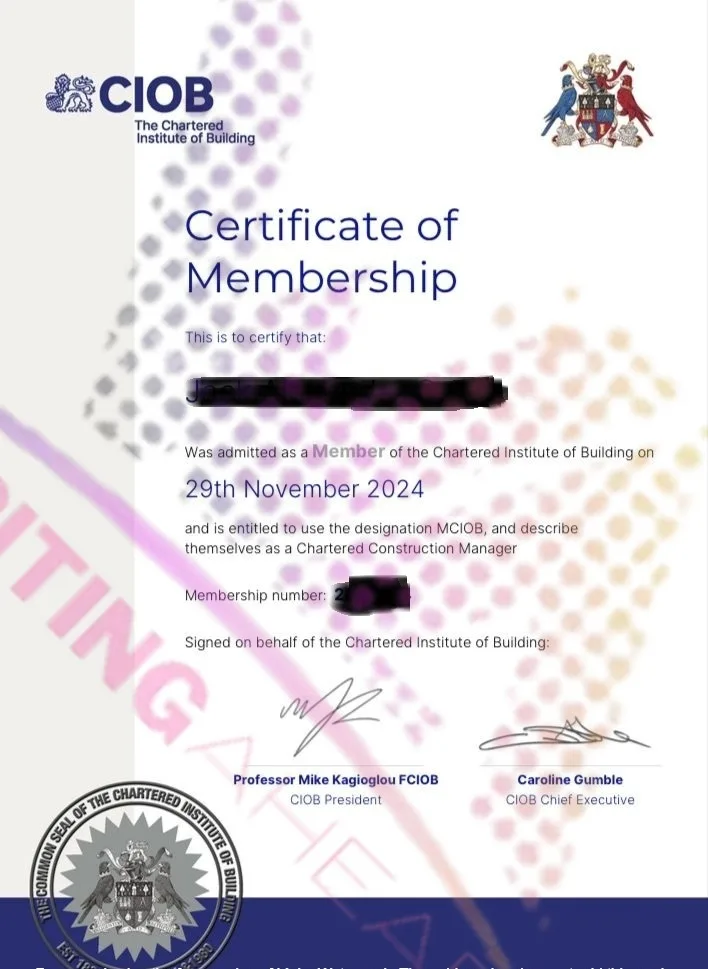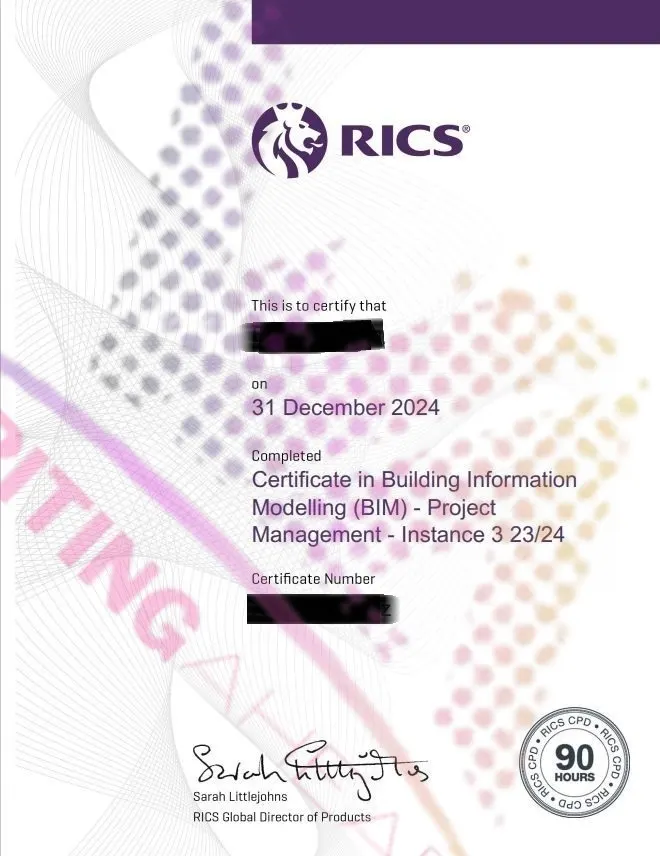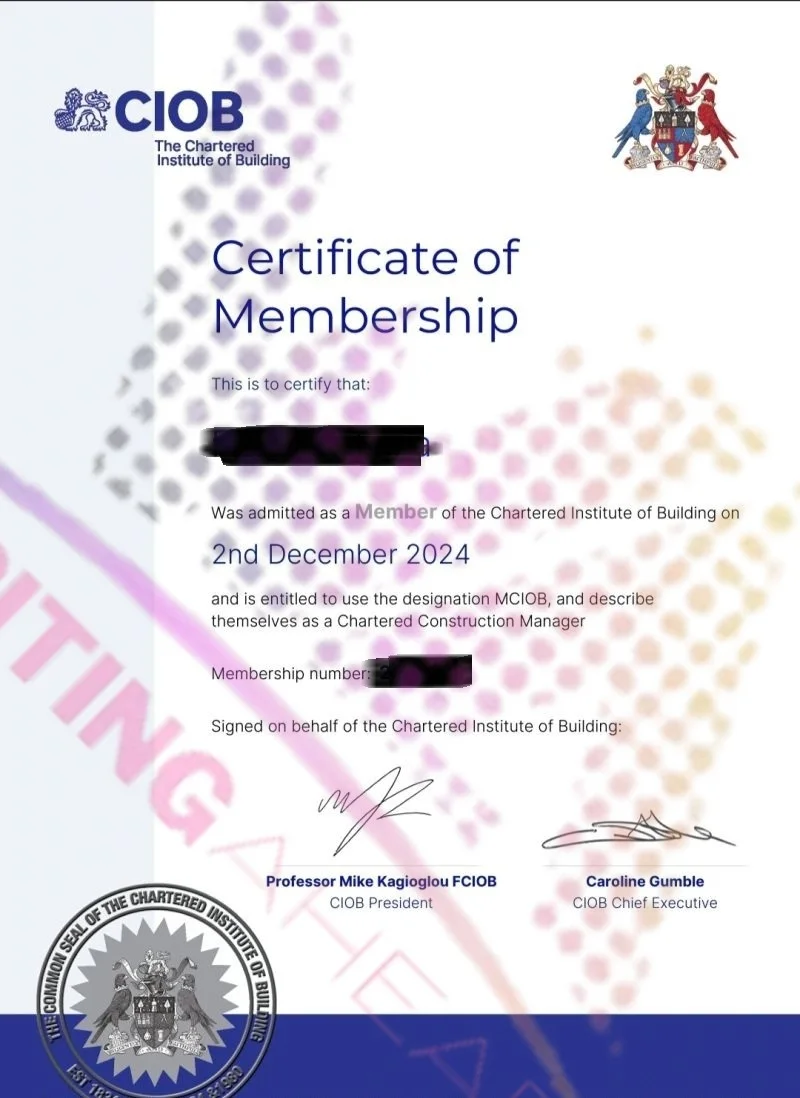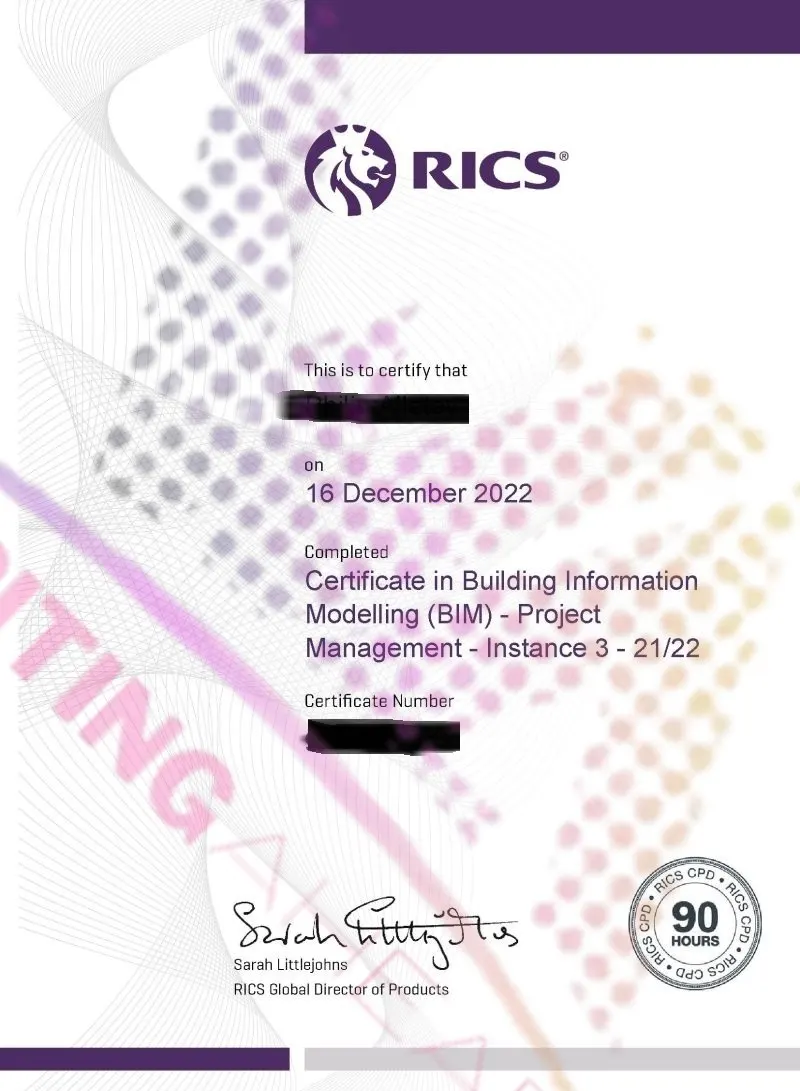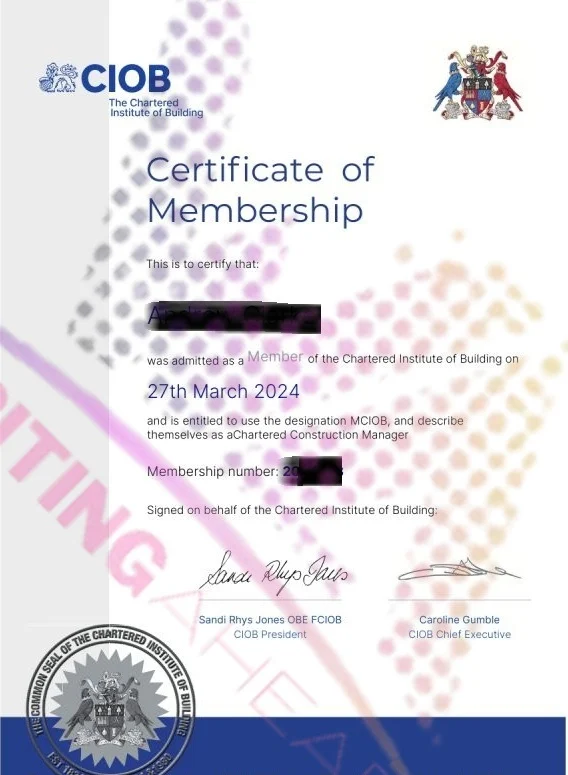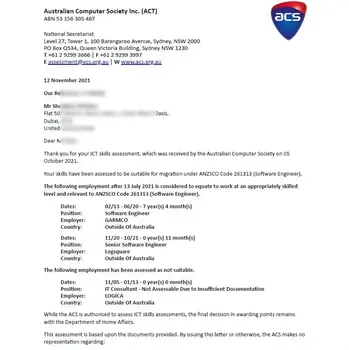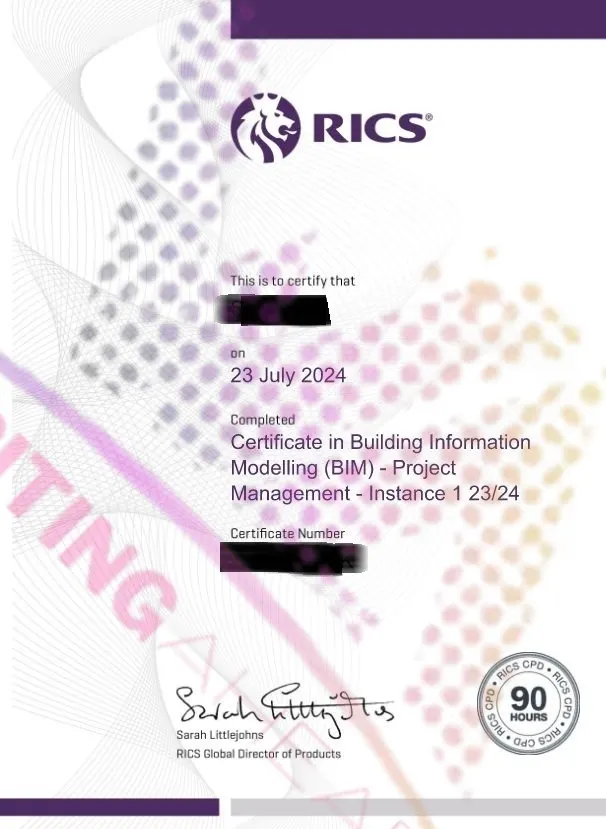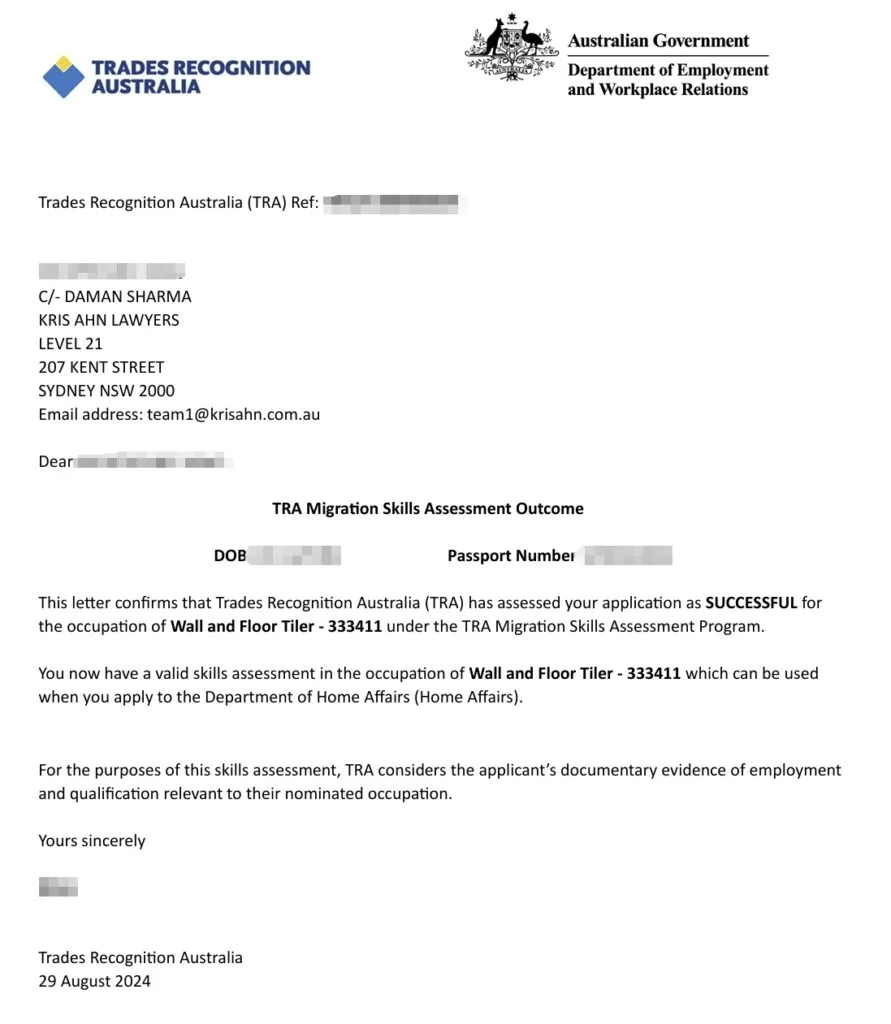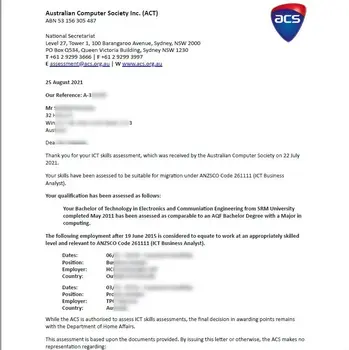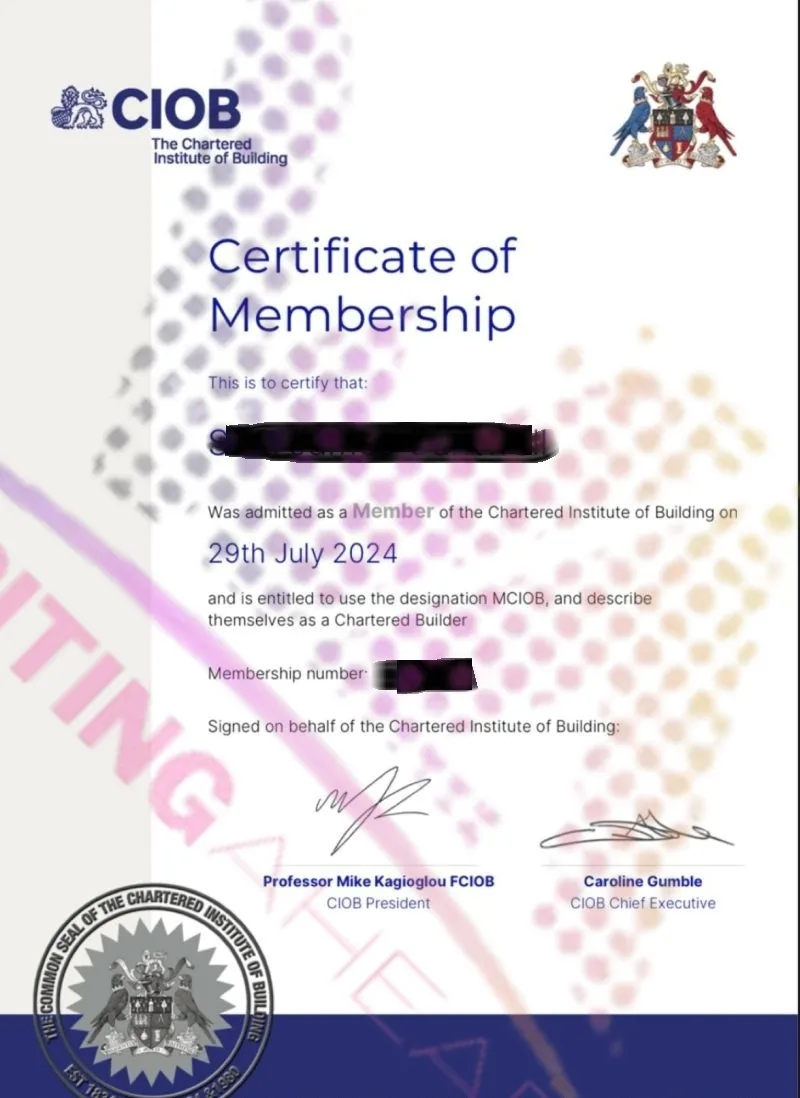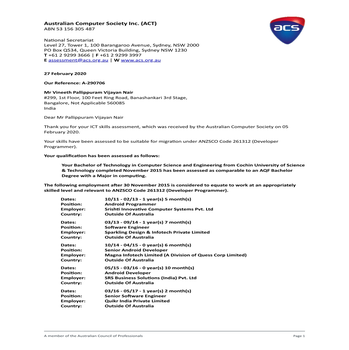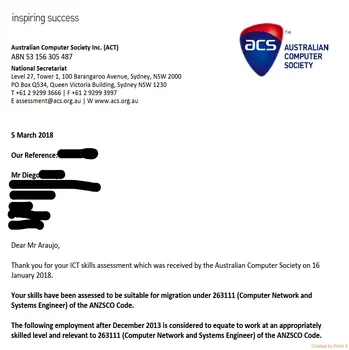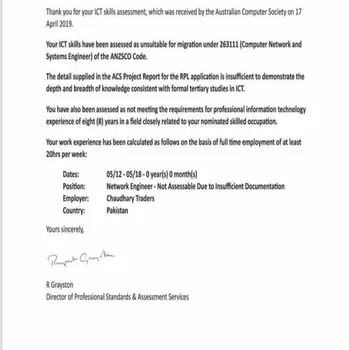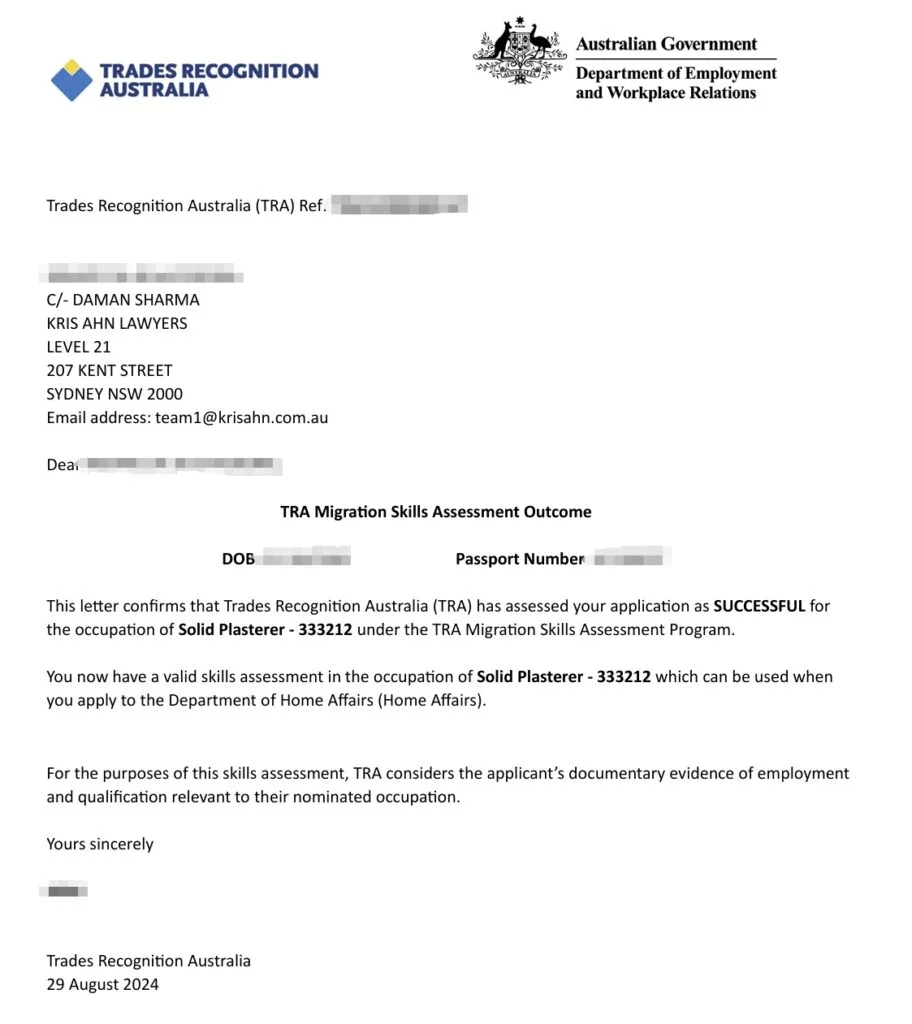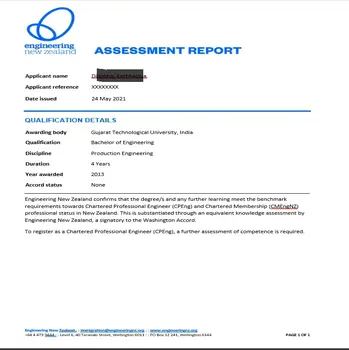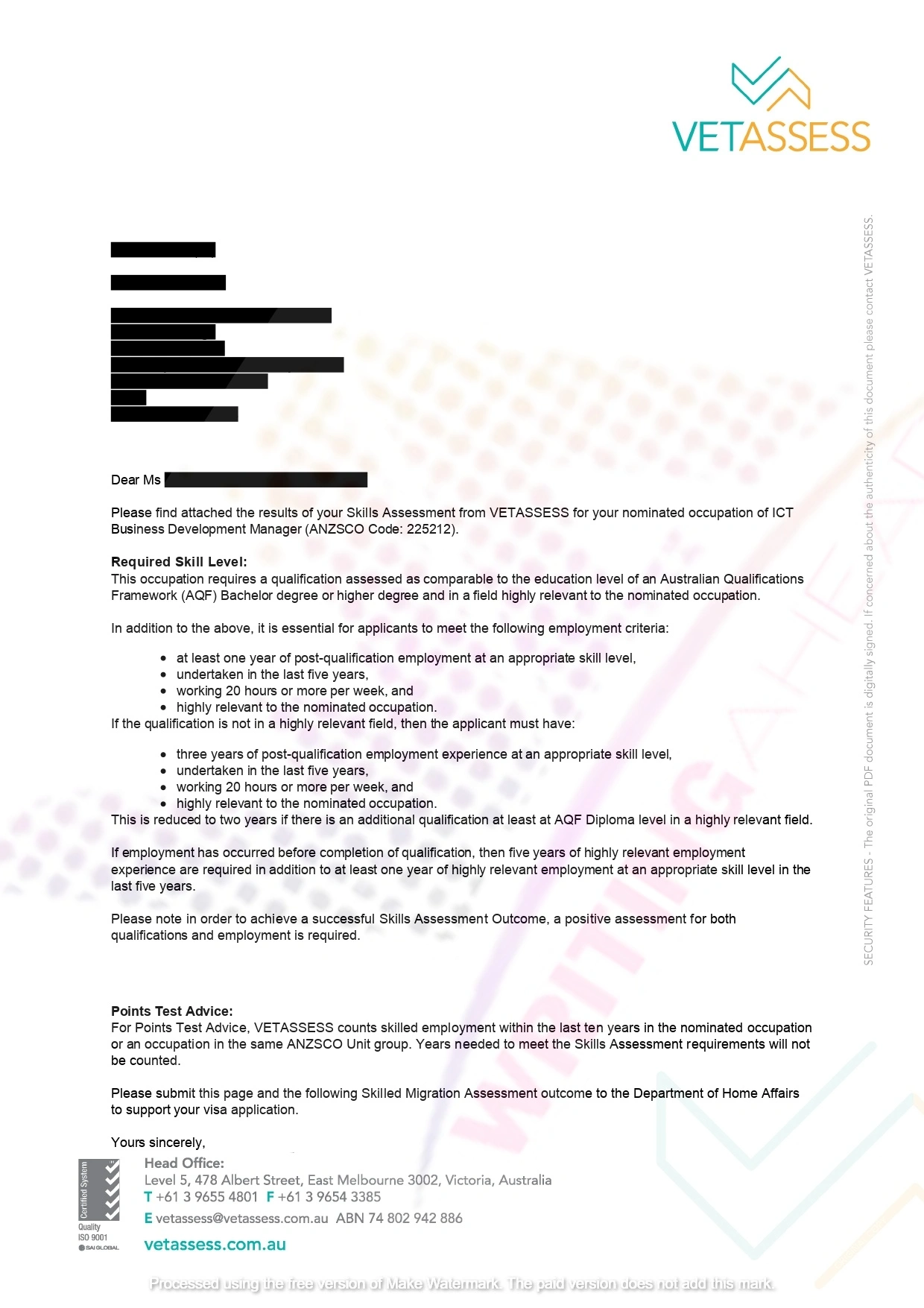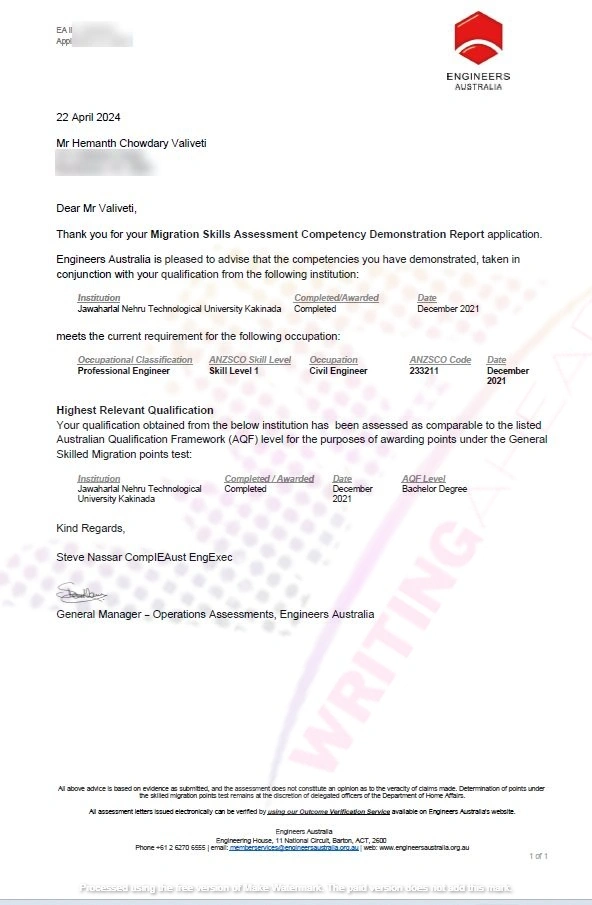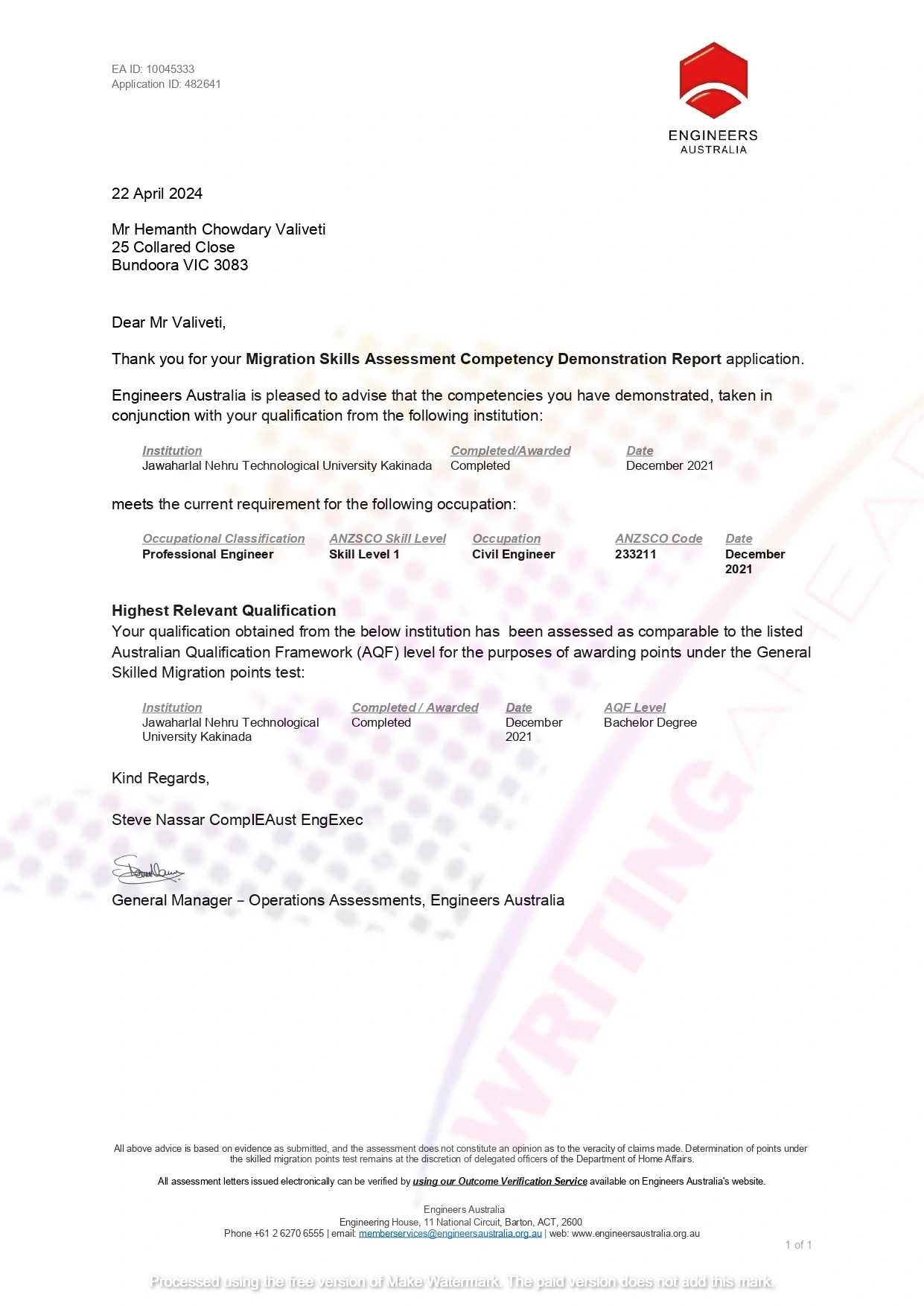ACS Skills Assessment for Australian Skilled Migration
🏅 4.9/5 Rating
Certified Experts
💯 Privacy
Premium Quality
🏅 4.9/5 Rating
Certified Experts
💯 Privacy
Premium Quality
The ACS Skills Assessment is a proper evaluation manner carried out via the Australian Computer Society (ACS) to assess the abilties, qualifications and work experience of Information and Communication Technology (ICT) professionals who wish migrate to Australia.
This assessment determines whether or not an applicant’s ICT understanding and enjoy meet the requirements required to work in their nominated occupation beneath the Skilled Migration Program.
You Are an ICT Graduate - You have completed a diploma in an ICT-associated field (e.G., Computer Science, IT, Software Engineering) however need to prove your work revel in matches your selected ANZSCO code.
You Have Non-ICT Qualifications- You preserve a diploma in a non-ICT area (e.G., Business, Civil Engineering) but have received ICT know-how via expert revel in.
You Do Not Have Formal ICT Qualifications - You haven't any formal tertiary schooling but have 6 years of ICT work experience in a applicable career.
ACS Skills Assessment is an essential way of the ICT professionals who are in search of migrating to Australia especially those applying under professional migration visa. So, it is why such an assessment can be of great importance:
| 1. Pathway to Skilled Migration | Visa Requirements: The abilties assessment is a mandatory necessity to ICT experts supplying the use of professional migration to Australia, which contain visas: Skilled Independent visa (subclass 189), Skilled Nominated visa (subclass one hundred ninety), and Skilled Regional (Provisional) visa (subclass 489). | Validates Qualifications: It verifies that an applicant’s academic qualifications and paintings experiences meet Australian standards for ICT specialists. |
|---|---|---|
| 2. Recognition of International Qualifications and Experience | Bridging Gaps: The assessment helps bridge educational and expert practice differences between international locations by means of assessing if an person’s qualifications and experiences are equivalent to those required in Australia. | Standardization: Provides a preferred manner to degree and apprehend the talents and qualifications of ICT specialists from around the sector. |
| 3. Career Opportunities | Employment Prospects: Successfully passing the ACS skills evaluation complements a candidate's activity possibilities in Australia, as employers regard this as evidence of the candidate's abilties and compliance with Australian requirements. | Professional Recognition: It allows in gaining club with ACS, that's surprisingly appeared within the ICT industry in Australia and the world over. |
| 4. Assurance of Skill Level | Quality Assurance: Ensures that every one ICT professionals getting into Australia thru the professional migration program have the needful talents and knowledge to make contributions definitely to the Australian economic system. | Maintaining Professional Standards: Helps hold excessive professional requirements in the Australian ICT industry with the aid of making sure that incoming specialists own appropriate capabilities and moral requirements. |
| 5. Facilitates Further Professional Development | Continuous Learning: Encourages candidates to keep their professional development to satisfy the stringent criteria set by ACS, promoting a culture of chronic gaining knowledge of and edition to new technologies and practices. | Networking and Growth: Successful ACS assessment helps a person get networking opportunities through ACS seminars, workshops, and events that result in expert development and networking with individuals. |
In Writing Ahead we offer give-end migration services starting with skills assessment of the ICT career of choice to approvals in search of those regions experiencing high demand. With 25 years of IT expertise from one in every of our administrators and an in-house improvement crew, we deeply recognize IT requirements and ACS requirements—ensuring particular, reliable steerage with out relying on external consultants.
ACS offers distinct forms of abilities evaluation pathways to assess the qualifications and paintings enjoy of ICT specialists for Australian migration. The form of utility you pick out depends for your instructional history, work revel in, and migration purpose.
Here’s an in depth breakdown of the forms of ACS abilties evaluation packages:
It is the pathway that allows the application of temporary graduate visa (subclass 485) to graduates that have completed an ICT-related course in Australia.
This application type is for graduates who've completed an ICT-associated qualification in Australia and feature relevant post-observe work enjoy.
This is the most common pathway for overseas and Australian applicants seeking a skills assessment for migration purposes.
| Qualification Type | Work Experience Required |
|---|---|
| ICT Major (closely related) | 2+ years in the last 10 years. |
| ICT Major (partially related) | 4+ years in the last 10 years. |
| Non-ICT Qualification | 6+ years in the last 10 years. |
| No formal qualification | 8+ years of relevant work experience. |
This pathway is for applicants who do no longer keep an ICT qualification or have a non-ICT diploma but have obtained ICT talents through paintings experience.
For applicants who've completed an ACS Professional Year Program (PYP) in Australia.
This pathway is specially for applicants from choose countries (e.G., India, Sri Lanka, Pakistan, UAE, Nepal) who are applying for a competencies evaluation to work in regional Australia or underneath the Temporary Skills Shortage (TSS) visa program.
It is important that ICT professionals, who wish to emigrate to Australia, apply to an ACS Skills Assessment. But, unfortunately, most candidates commit errors that lead to rejection, being put on hold or even being banned to reapply in a 12-month period.
To assist you keep away from those pitfalls, here are the maximum not unusual mistakes in ACS Skills Assessment programs and professional guidelines on a way to save you them.
| Mistake: | How to Avoid: | |
|---|---|---|
| Choosing the Wrong ANZSCO Code |
|
|
| Submitting an Incomplete or Incorrect RPL Report |
|
|
| Failing to Provide Proper Work Experience Evidence |
|
|
| Representation or Offering the Wrongful Information |
|
Ensure the dates, job roles, and responsibilities match across your:
Be truthful and consistent in all documents. |
| Ignoring ACS Key Areas of Knowledge |
|
|
| Lack of the Required Work Experience |
|
Check ACS’s work experience requirements for your qualification type:
|
| Handing in Badly Formatted or Written Papers |
|
Format your employer reference letters properly with:
|
| Providing Plagiarized or Generic Career Episodes in RPL |
|
Write original career episodes with:
|
| Ignoring ACS Processing Time and Submitting Late |
|
|
| Not Seeking Professional Help When Needed |
|
Consult an ACS migration expert if unsure about:
|
As you prepare your ACS Skills Assessment application, it is imperative to follow the indications of the specifics given by the ACS to the tee in order to enhance your chances of a successful assessment. The ACS Skills Assessment tests whether your teaching qualifications and work experience match the demands of the Australian ICT sector, which is necessary in obtaining migration under various visa subcategories. Here are the important thing writing pointers and considerations in your ACS software:
Objective: The ACS Skills Assessment evaluates your ICT abilties to determine if you are appropriate for migration to Australia below the skilled migration visa. This exam will confirm that your teaching experience and professional enjoy undergo Australian standards of ICT professionals.
This is why professional advice is important when sitting ACS Skills Assessment:
Yes, work experience is commonly required for an ACS Skill Assessment, depending to your qualifications. For ICT-related levels, at the least 2 years of relevant experience is wanted, at the same time as non-ICT qualifications require 6 years. Without formal qualifications, eight years of experience is required, frequently with an RPL report.
Professional RPL writing services make certain your file meets ACS hints, highlighting your skills and revel in successfully. They deliver plagiarism-loose, tailored reviews to limit rejection risks and prevent time. Their information boosts your chances of ACS approval.
An ACS skill assessment typically takes 8 to 10 weeks from the date of software submission. For a faster procedure, you could choose the concern processing, which takes about 2 weeks.
An ACS skill assessment is valid for 2 years from the date of problem for Australia PR purposes. You have to make certain it remains valid on the time of filing your visa utility.
The ACS Skill Assessment is a system performed by the Australian Computer Society (ACS) to evaluate the qualifications and work revel in of ICT specialists applying for skilled migration to Australia. It determines whether your schooling and work enjoy meet the desired requirements in your nominated ICT occupation as indexed at the Australian Skilled Occupation List. A nice ACS assessment is essential on your visa software.
No, IELTS or English proficiency test is not mandatory in case of ACS Skill Assessment. Nonetheless, you will be required, at the point of submitting your visa utility as an Australia PR, to submit an IELTS or identical English proficiency rating.
For an ACS Skills Assessment, you need ICT-related qualification and at least 2+ years of relevant work experience (or 6 years for non-ICT qualifications). Without formal ICT qualifications, you’ll need 8 years of work experience and RPL report.
